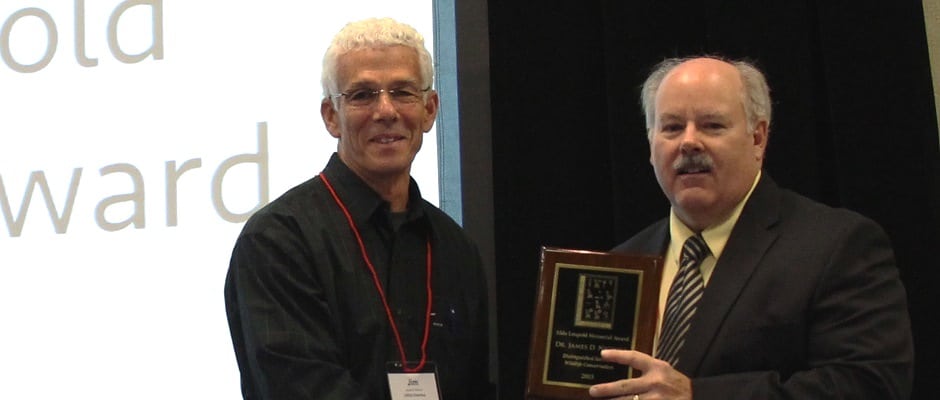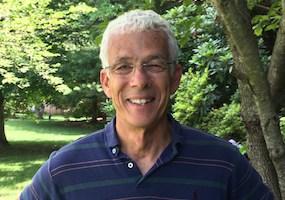Share this article
Nichols to deliver Aldo Leopold Keynote Address in Raleigh
As the recipient of last year’s Aldo Leopold Memorial Award, Dr. James D. Nichols will deliver the first-ever Aldo Leopold Keynote Address in a new special event at this year’s Annual Conference in Raleigh.
Arguably the most influential researcher in animal population dynamics worldwide, Nichols is a Senior Scientist with the U.S. Geological Survey’s Biological Resources Division. He has played a key role in important innovations in quantitative ecology, particularly in animal population dynamics and wildlife management. His major contributions include development of capture-recapture sampling theory, models estimations and protocols. He has produced more than 400 publications and reports, has been published in more than 70 scientific outlets. Below, Nichols discusses the topic of his address, titled “On the Evolution of the Wildlife Profession: The Times They Are A-Changin.’”
“In his seminal book that defined our profession, “Game Management,” Aldo Leopold wrote about 3 classes of methods that would be needed by wildlife managers: modeling managed systems, estimating key features of these systems, and using models and estimates to make wise management decisions. I suspect that if Leopold was somehow permitted to glance through the 2016 volume of Journal of Wildlife Management (JWM), he would be incredibly impressed by the evolution of thinking that has occurred in modeling and estimation since 1933. However, he would find little evidence either in JWM or in any discussions with current managers that actual management decisions are being made any differently than in 1933. Decisions are still made by one or a few experts who rely on their own thought processes to integrate their personal knowledge of objectives, potential actions, models, and estimates in order to decide what action to implement. The methods of “decision theory,” just as those of modeling and estimation, have evolved substantially over the last 80 years, but the wildlife profession has not taken full advantage of these developments. I argue that any vision for the future of wildlife management must include greater use of structured decision making (SDM) and adaptive management (AM) as modern approaches to dealing with competing objectives, uncertainty about system responses to management and the various other issues that make decisions difficult.
Achieving such a vision will require collaboration and various kinds of partnerships, an important theme of this year’s TWS conference. SDM emphasizes the importance of objectives, the development of which essentially entails a partnership of all relevant stakeholder groups. Other decision components require disproportionate input from particular groups with specific roles. For example, the modeling and monitoring required in many SDM processes, including all AM, typically require close collaboration between managers and scientists. Indeed, AM essentially inserts a scientific step into the larger decision process, effectively integrating science and management in order to reduce uncertainty and produce better decisions as management proceeds. A handful of successful ongoing management programs illustrates our ability to build the relevant partnerships and implement formal decision processes. The challenge for the wildlife profession during the next decade is to move beyond this small number of examples and undertake serious decision processes as the new norm. An important challenge to the wildlife profession is to develop the expertise, capacity, and will that are required to implement this vision.”
Nichols will deliver his address in Ballroom A at 10:15 a.m. Sunday, Oct. 16, immediately following the opening plenary session. Don’t miss out on your chance to hear this living legend speak. Register for the conference today!
Header Image: TWS President Gary Potts presents Dr. James D. Nichols with the 2015 Aldo Leopold Memorial Award in Winnipeg.









